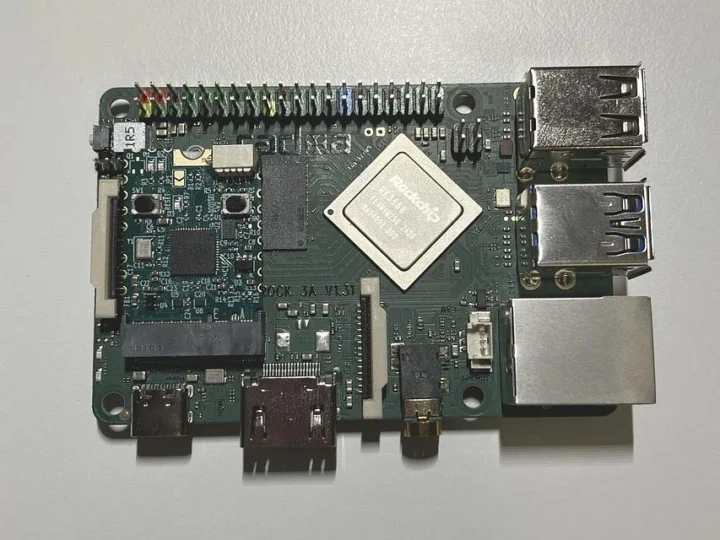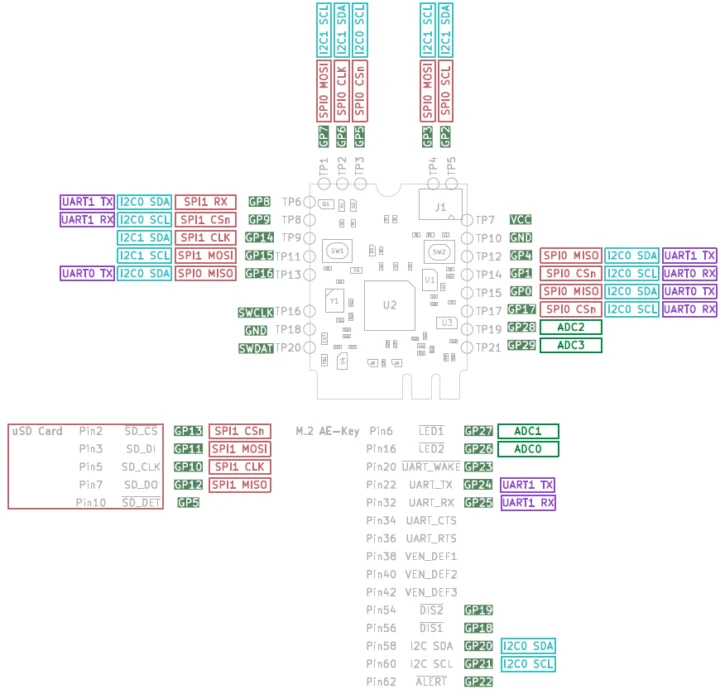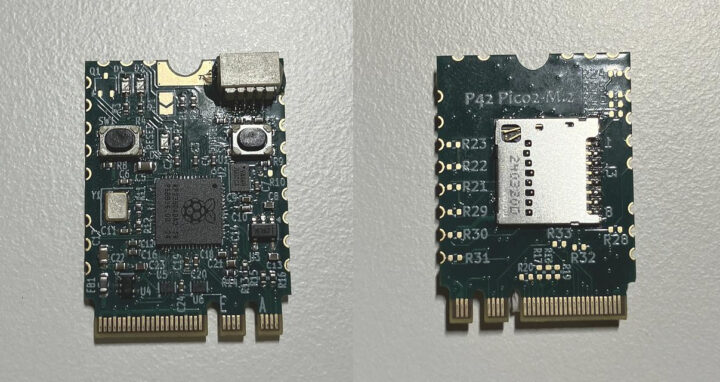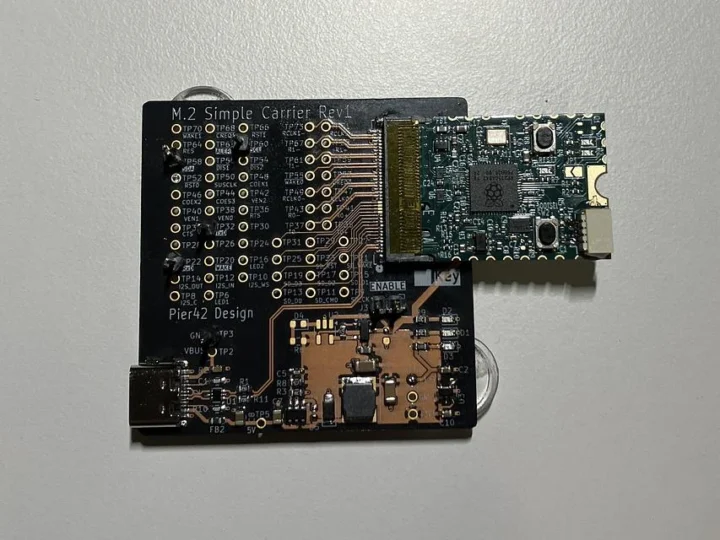The P42 Pico2 M.2 may look like an M.2 module, but it’s actually a Raspberry Pi RP2350 development board in M.2 2230 form factor whose edge connector exposes USB, UART, I2C, and control I/Os.
The board ships with a 2MB SPI flash and complies with voltage levels defined by the M.2 specification, with some of the interfaces running on 1.8 V. The SWD interface, +3.3 V, GND, and 16 IOs are accessible on castellated pins, and there’s also a QWIIC connector for I2C modules, but it’s not populated by default. The board also comes with a microSD card slot on the bottom and the usual Reset and BOOT buttons.
P42 Pico M.2 specifications:
- SoC – Raspberry Pi RP2350A
- CPU
- Dual-core Arm Cortex-M33 @ 150 MHz with Arm Trustzone, Secure boot OR
- Dual-core RISC-V Hazard3 @ 150 MHz
- Up to two cores can be used in any combination
- Memory – 520 KB on-chip SRAM
- Package – QFN-60
- CPU
- Storage
- 2 MB QSPI flash (16 Mbit W25Q16)
- MicroSD card slot
- USB – USB Type-C 1.1 host/device connector for power and programming
- Expansion
- M.2 edge connector (Key A/E) with USB, UART, I2C, ALERT, WAKE, DISABLE1/2, LED 1/2, VENDOR_DEFINED pins
- Qwiic connector
- 16x GPIOs on castellated pins with optional pull-down resistors to mitigate the E9 Erratum
- Debugging – SWD debug interface
- Misc
- RESET and BOOTSEL button
- User LED
- Power LEDs for 3.3 V and 1.1 V
- Solder bridge for configuration
- Power Supply
- 1.8 to 5.5V DC
- 1.8V regulator for level-shifter (Texas Instruments TXS0102DQM)
- Dimensions – 30 x 22 mm (M.2 2230-D5-AE card)

The microSD card holder on the bottom side has a thickness of 1.57mm with an inserted SD card, or 1.42mm without. It may make it incompatible with some M.2 configurations that have less clearance on the bottom side. The photo above implies there’s no such issue when the M.2 RP2350 board is connected to the M.2 Key-E socket of a Radxa ROCK 3A SBC.
I’m just not sure what the use case for this form factor is, although the principle is somewhat similar to Sparkfun M.2 MicroMod modules, but this would require building an ecosystem with multiple M.2 cards and carrier boards to be useful. There’s currently only the “M.2 Simple Carrier” used for testing and pictured below.
The P42 Pico2 M.2 is an open-source hardware project with KiCad hardware design files and Arduino samples available on GitHub.
Pier42 Design (Wolfgang Friedric) is not sure about the demand for this type of product, so he launched a pre-order campaign to gauge the interest and aims to get at least 25 boards pre-ordered. The P42 Pico2 M.2 goes for $26.97 before taxes and shipping, and I guess it does not include the carrier board. The lead time is currently shown to be 56 days, and the board ships from Canada.

Via Hackster.io

Jean-Luc started CNX Software in 2010 as a part-time endeavor, before quitting his job as a software engineering manager, and starting to write daily news, and reviews full time later in 2011.
Support CNX Software! Donate via cryptocurrencies, become a Patron on Patreon, or purchase goods on Amazon or Aliexpress






